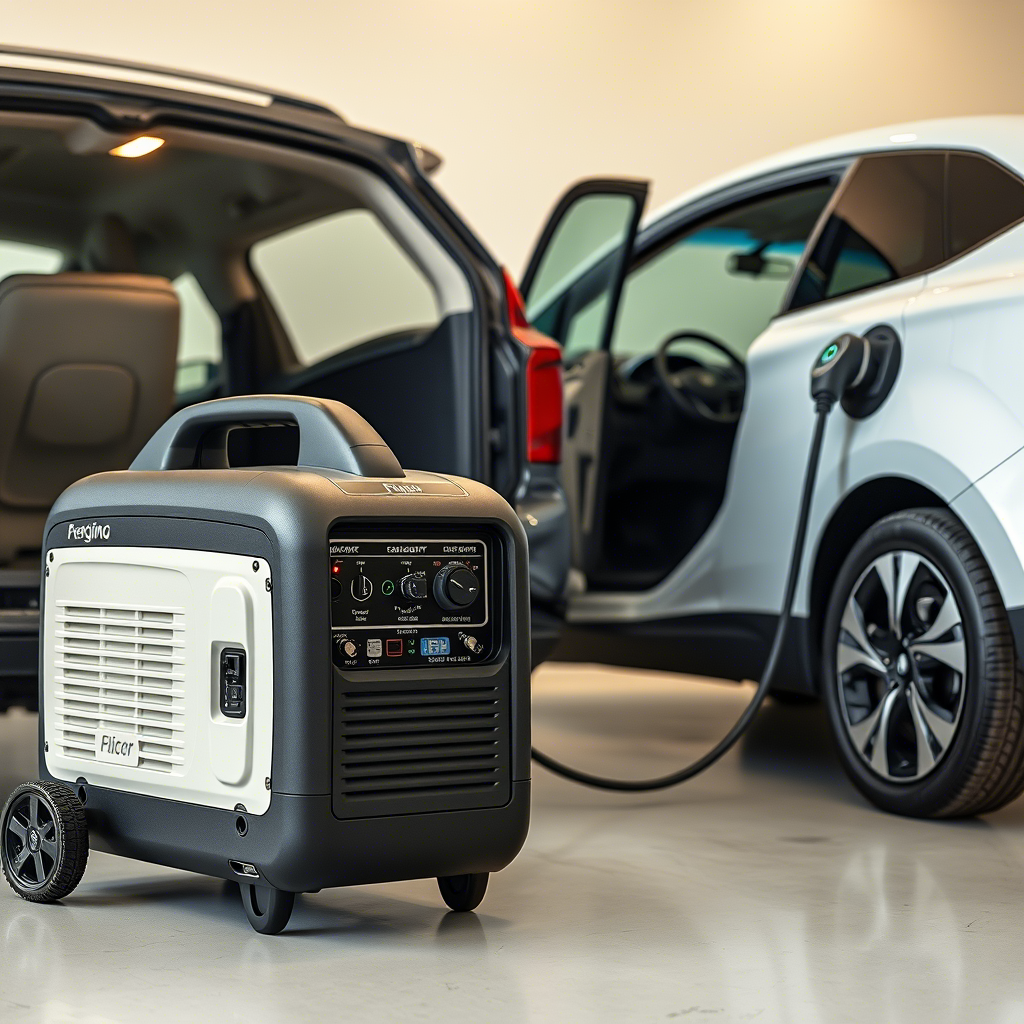Can I use a portable generator to power my RV?
As an RV owner, one of the most important things to consider is the reliability and longevity of your power supply. This is especially true if you plan on camping in remote areas or during power outages. In this case, you may be wondering if it’s possible to use a portable generator to power your RV. The short answer is yes, it is possible to use a portable generator to power your RV, but there are a few things you need to keep in mind before doing so.
In this article, I will go over the basics of using a portable generator to power your RV, including the types of generators available, the power requirements for your RV, and some important safety tips to keep in mind.
Types of Portable Generators
There are several types of portable generators available, each with their own set of pros and cons. The most common types are:
- Inverter generators: These are smaller and more lightweight than traditional generators, making them ideal for camping or tailgating. They also tend to be more fuel-efficient and produce less noise. However, they may not have enough power to run larger appliances like an RV air conditioner.
- Traditional generators: These are larger and more powerful than inverter generators, making them a better choice for running an RV. However, they tend to be heavier, louder, and less fuel-efficient.
Power Requirements for Your RV
Before you can decide which type of generator to use, you need to know the power requirements for your RV. Most RVs will have a label on them indicating the power requirements in watts or amps. Keep in mind that the wattage or amperage listed on the label is the maximum power the RV will use, so you’ll need to choose a generator that can handle that amount of power. It is also important to note that different appliances in your RV will have different power requirements, for example, your air conditioner will consume more power than your refrigerator.
Safety Tips
Before you start using a portable generator to power your RV, it’s important to keep a few safety tips in mind:
- Always follow the manufacturer’s instructions when using a generator.
- Never use a generator indoors or in an enclosed space. Generators produce toxic carbon monoxide gas, which can be deadly if inhaled.
- Always keep your generator dry and protected from the elements.
- Make sure your generator is properly grounded.
- It is important to have a transfer switch installed in your RV to safely transfer power from the generator to your RV’s electrical system.
- Be aware of the noise level of the generator, some places have strict rules regarding generator noise levels.
How to Size a Generator for Your RV
- Determine the power requirements for your RV: Look for the label on your RV that indicates the power requirements in watts or amps. Make note of the power requirements for each individual appliance in your RV, including the air conditioner, refrigerator, microwave, and lights.
- Add up the power requirements: Add up the power requirements for each individual appliance in your RV to determine the total power requirements.
- Add a buffer: Keep in mind that the total power requirements will only be an estimate, and it’s always a good idea to add a buffer of at least 20-30% to account for any unexpected power needs.
- Choose a generator: Based on the total power requirements and buffer, choose a generator that can handle the power needs of your RV.
- Take into consideration the fuel efficiency and noise level of the generator, especially if you plan on using it in a campground or other public area.
- Check the generator’s compatibility with your RV’s electrical system: Make sure the generator you choose is compatible with your RV’s electrical system, and that it has the proper outlets and voltage.
By following these steps, you can ensure that you choose the right generator for your RV, and that it has enough power to keep all of your appliances running smoothly. However, it is important to note that using a generator should be a temporary solution and it is always better to have a backup plan such as a battery bank or solar panel to have a sustainable power source.
Let’s say you have a 30-foot RV that you want to power with a portable generator. Your RV has a 15,000 BTU air conditioner, a refrigerator, a microwave, and some lights. The air conditioner alone can consume up to 1500 watts, the refrigerator can consume up to 600 watts, the microwave can consume up to 900 watts, and the lights can consume up to 100 watts. This means that at full power, your RV will consume around 2700 watts. In this case, you would need a generator that can handle at least 3000 watts.
Conclusion
In conclusion, it is possible to use a portable generator to power your RV, but you need to make sure you choose the right type of generator and keep in mind the power requirements for your RV. Additionally, it’s important to keep safety in mind when using a generator and always follow the manufacturer’s instructions.

